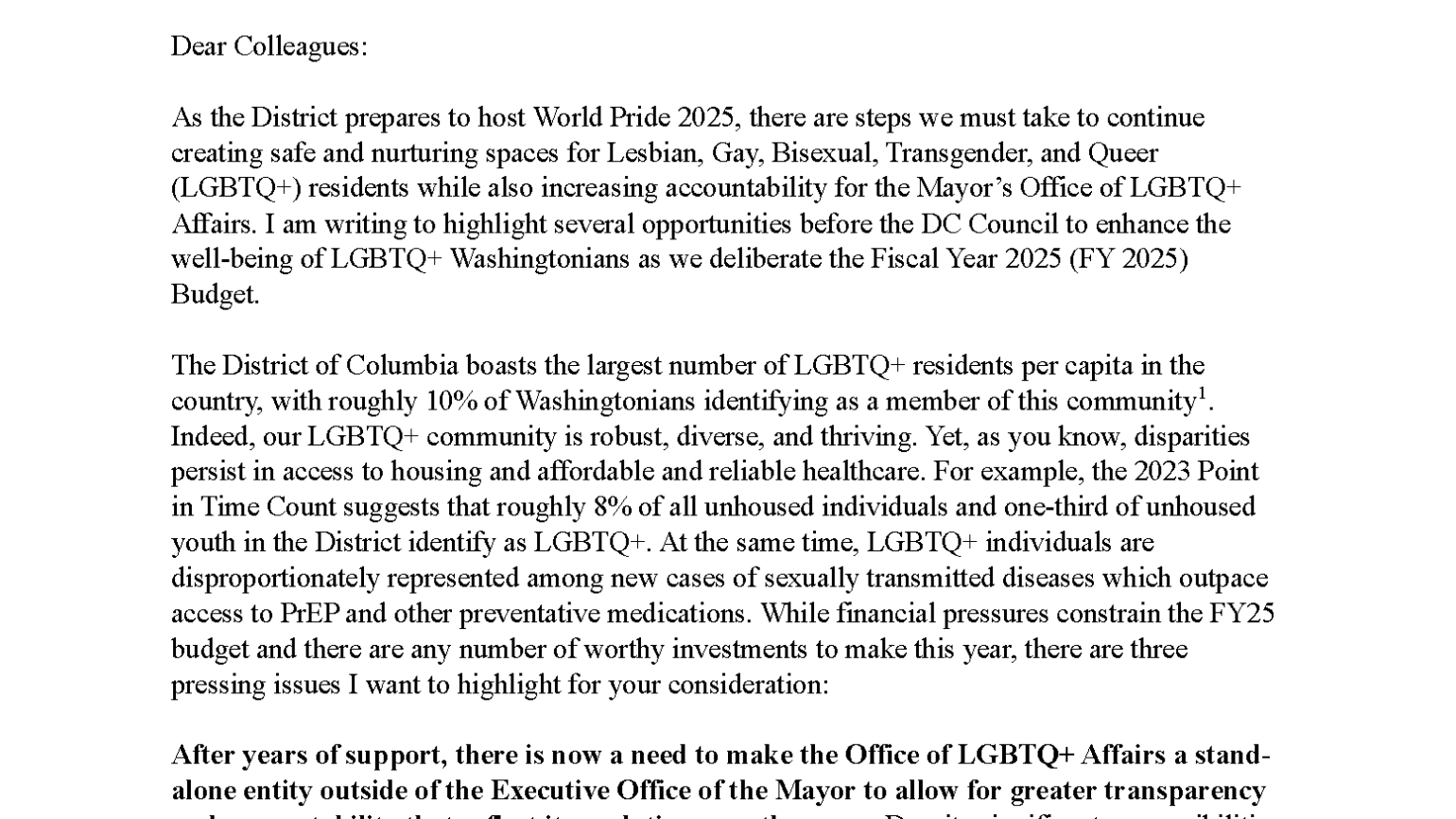Dear Ward 5 neighbors,
Earlier this week, I announced new legislation aimed at reviving DC’s storied history of cooperative economics and worker-owned businesses.
The Opening Worker-ownership: a New Economic Resilience Strategy (OWNERS) Amendment Act of 2024 focuses on preserving legacy shops and businesses that meet our communities’ needs. The bill also aims to expand worker cooperatives in the District. It will accomplish this by directing the District’s Department of Licensing and Consumer Protection (DLCP) to:
- Survey our business ecosystem to identify opportunities for worker cooperative conversions; and,
- Co-create a city-wide strategy to help District business owners sell to their employees—a process known as worker cooperative conversion.
In effect, this legislation will pave the way for the District to return to its rich tradition of community-centered economic development. Mayor Marion Barry made cooperative development a key feature of his economic strategy in the 1980s and 1990s, including the establishment of a Commission on Cooperative Economic Development. In a city facing skyrocketing costs, it has become all too common to see community businesses close and neighbors struggling to make ends meet.
We must reinvest in alternative economic development approaches, often referred to as community wealth building, local economic infrastructure, cooperative economic development, or the solidarity economy. The common thread across these concepts is the effort to provide residents and employees with equity in the wealth generated, achieved through expanding worker cooperatives, employee ownership, and community control. Expanding worker cooperatives represents a fundamental way to promote democracy and harness economic power, particularly in a time when Home Rule is under threat.
Early this week, I also submitted feedback from the Ward 5 Bus Network Task Force to WMATA on its proposed 2025 network. The task force requests that WMATA:
1. Maintain 12-minute headways on the proposed D30 route (80 replacement) and consider consolidating stops on North Capitol Street to speed up service.
2. Add express service on Rhode Island Avenue to facilitate swift trips to and from downtown.
3. Modify the C71 route to more directly serve shelter and migrant residents on New York Avenue.
4. Establish corridor-length service on South Dakota Avenue, which is undergoing a safety study that could facilitate bus travel along the corridor.
5. Modify the 24/7 network so that the C41 serves Ivy City, a nightlife destination, between midnight and 4 AM.
6. Consider medium frequency service on the proposed C57 route, which will provide an excellent new option for residents of Carver-Langston and Trinidad to travel to points east and west.




